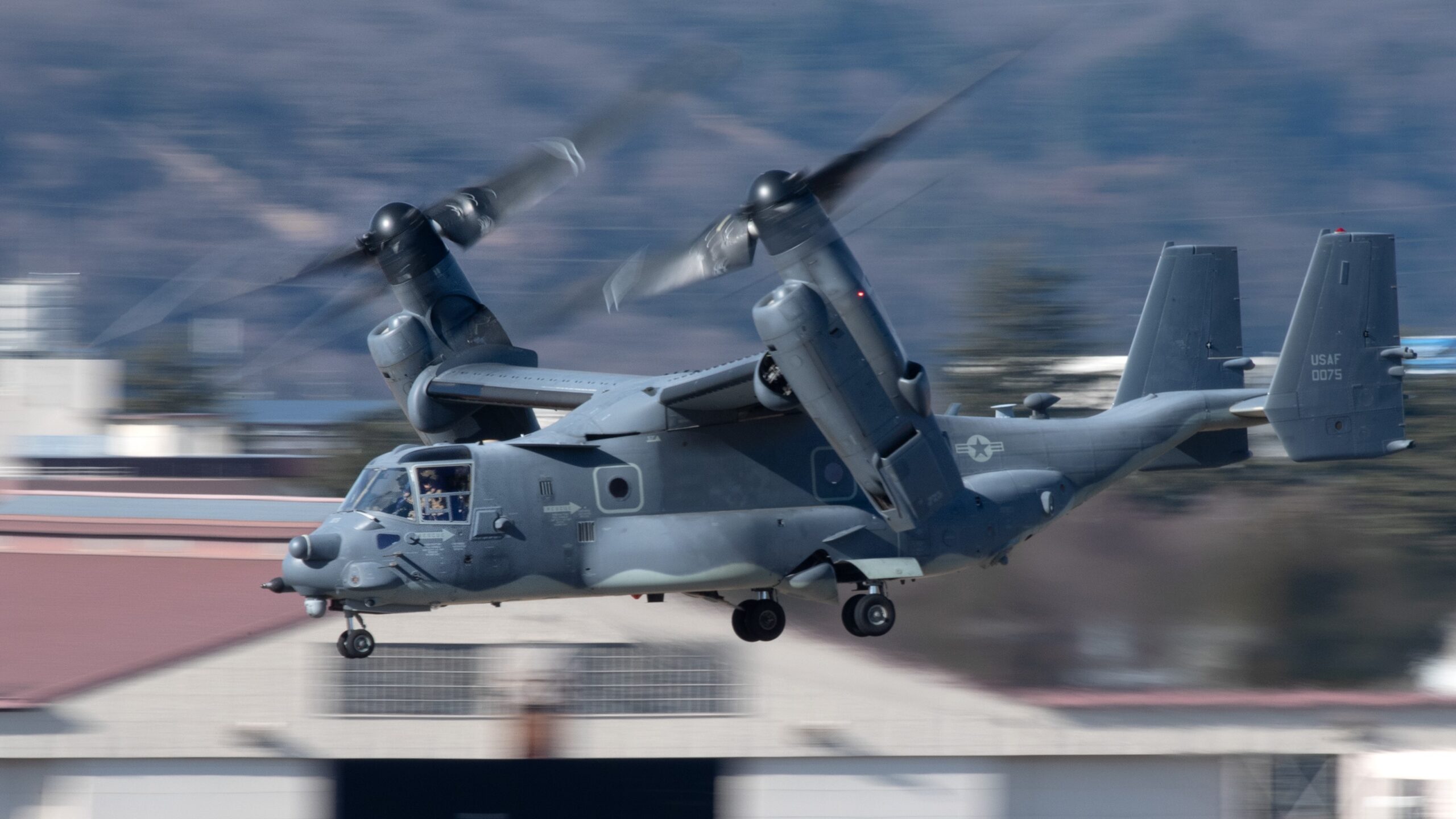
LOS ANGELES — Six days after an Air Force CV-22 Osprey crashed off the coast of Yakushima Island in southwest Japan, the US military is formally transitioning from search and rescue operations to search and recovery — an indication it’s “unlikely” any survivors remain, according to Air Force Special Operations Command (AFSOC).
The grim development was announced by AFSOC in a press release today as an update on the fatal Nov. 29 incident. Of the eight crew members aboard the aircraft assigned to Yokota Air Base, the remains of three have been recovered, another three have been located and two are still missing, AFSOC said. The families of the deceased have been notified, the command said.
Recovery operations, led by the Air Force in conjunction with fellow military services and Japanese forces, will continue in search of the two remaining bodies, as well as any lingering wreckage.
Tokyo responded to the crash by grounding its own fleet of Ospreys and asking Washington to do the same for V-22s in Japanese territory. But military officials so far appear to have decided to let their Osprey fleets keep flying. A Pentagon spokesperson said Monday that the unit that flew the CV-22 that had the accident “is not conducting flight operations at this time,” what the spokesperson said was “standard procedure.”
“All CV-22 Ospreys in Japan operate only after undergoing thorough maintenance and safety checks,” Deputy Pentagon Press Secretary Sabrina Singh told reporters.
A spokesperson for AFSOC told Breaking Defense the 21st Special Operations Squadron’s “operational pause” is not related safety concerns, but is meant to allow colleagues time to grieve.
“Our thoughts and prayers are with the families, friends and peers of all who are impacted by this mishap and loss of life,” Lt. Gen. Tony Bauernfeind, Air Force Special Operations Command commander said in the AFSOC statement. “In times like these, where service to our nation is not just a personal commitment but also a legacy woven into the fabric of our families, the depth of sorrow is immeasurable. The honorable service of these eight Airmen to this great Nation will never be forgotten, as they are now among the giants who shape our history.”
The Nov. 29 crash is the second fatal incident for the Osprey this year. In August, a Marine Corps MV-22B crashed in Australia, killing three Marines and injuring several others. Last year, two Marine Corps Ospreys separately crashed in March and June, where all four and five crew members, respectively, were killed.
The March crash was attributed to pilot error, but investigators of the June crash blamed a malfunction in the aircraft’s gearbox known as a “hard clutch engagement” (HCE) that an accident report described as “unpreventable.” The HCE issue sparked a standdown for the Air Force’s variant of the aircraft and prompted a retrofit effort, though the Marines at the time decided not to ground their fleet.
“We continue to gather information on this tragic incident, and we will conduct a rigorous and thorough investigation,” Defense Secretary Lloyd Austin said in a statement today.

